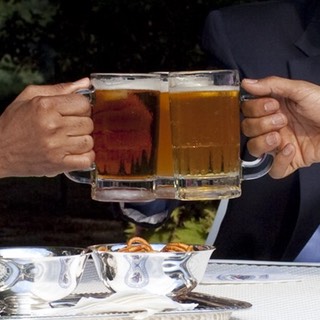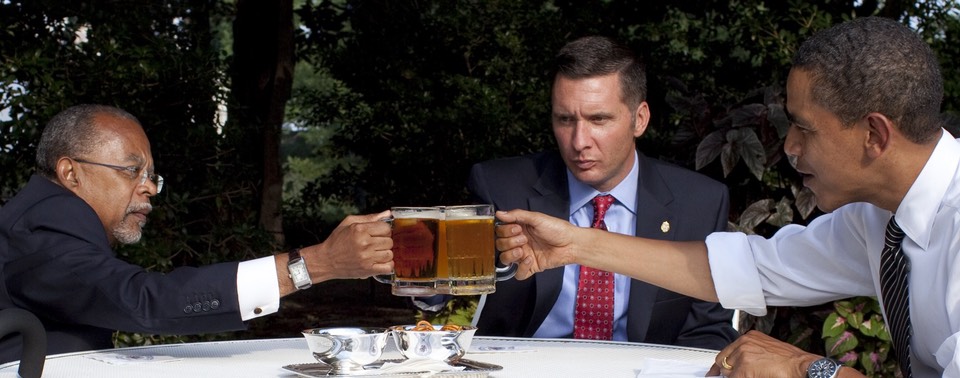- Good news everyone! New test could guarantee the perfect avocado.
- The Counter says small chicken farmers are doing OK, while smaller slaughterhouses are still being butchered by the big guys.
- Ancient grains? We got ‘em. The revival of the grains that the ancient Greeks called zea and Bruce Pascoe’s first modern harvest of “dancing grass” down under.
- Canadian hop growers crying politely into their beer.
- If the “the Canadian Native Haute Cuisine Team” can take gold at the Culinary Olympics, what’s stopping those lacklustre Canadian craft brewers?
- Anyone doing home-schooling on the Egyptians? This one’s for you.
You are what you drink Or maybe you drink what you are

Podcast: Play in new window | Download (Duration: 21:10 — 19.4MB)
Subscribe: Google Podcasts | Spotify | Android | RSS | More

Taste has never really been purely subjective, good taste has always come with the baggage of social status and moral superiority. Perhaps nowhere is this more apparent than in politics, where the extended meanings of taste — refinement, discernment, judgement — brought with them an assumption that these were also the qualities associated with the ability to govern well. If you could choose a superior wine, of course you could choose a superior policy for the nation.
Chad Ludington, Professor of History at North Carolina State University, has studied the politics of wine in Britain extensively. He told me how changes in the production of wine, against the background of changes in political relationships between England and France and in the social structure of England, combined to make one’s choice of wine an important statement about one’s self-image.
In America, beer plays the part of wine in Britain, but the story is practically identical.

Notes
- Would you like a transcript?
- Professor Ludington’s book is The Politics of Wine in Britain: A New Cultural History.
- A few years ago we talked about How the Irish created the great wines of Bordeaux (and elsewhere).
- Food Fights, the book that prompted this episode, is published by University of North Carolina Press.
- Ale to the Chief (which is pretty clever) provides the background to Barack’s brews.
- Official White House photo by Pete Souza. Bottles of port by F. Tronchin on Flickr. Portrait of Robert Walpole, 1st Earl of Orford, by Jean-Baptiste van Loo.
Eat This Newsletter 123 Meat matters
- Jayson Lusk explains Changes in Meat Supply and Demand and what that actually means, at least in the US …
- … where lack of meat is not part of greater food insecurity.
- Another topinambour, monsieur?
- The University of Pisa gets to promote the natural variability of the fig.
- Faster, breeder! More! More!
- Why should you care that Scottish Archaeologists Discover Ruins of Massive Lost Wine-Bottle Glass Factory? Because bottle technology changed tastes, as will be explained in nest week’s episode.
Disputations about taste What is good taste? What tastes good?

Podcast: Play in new window | Download (Duration: 16:06 — 14.8MB)
Subscribe: Google Podcasts | Spotify | Android | RSS | More

Taste is a very curious thing. We understand that how we taste something is almost entirely subjective, that while it depends to some extent on the physical and chemical properties of the things we’re tasting, the sensation is overlaid with all sorts of cultural and personal memories. Unless you have access to all of those, there’s nothing you can say about my taste. Except, we do that all the time. We slip easily from taste being indisputable to good taste and bad taste and from there to making taste the basis of moral judgements. What’s more, this is nothing new.
These thoughts, and many more, were prompted by a new book: Food Fights: How History Matters to Contemporary Food Debates. It contains two chapters that cover taste directly (and a third that considers food choice from a slightly different point of view). In an effort to straighten myself out on the subject, I talked to the two chapter authors, and they’re going to be the guests in at least the next two episodes.
In the first instance, Margot Finn talked to me about the nature of taste and about how efforts to change people’s taste in food have often stemmed from a desire to change their behaviour.
Notes
- S. Margot Finn wrote Discriminating Taste: How Class Anxiety Created the American Food Revolution. She is “inconsistently” on Twitter.
- Food Fights is published by University of North Carolina Press. Here’s one place to source a copy.
- There is a transcript.
- Harvard crew circa 1910 from the Library of Congress. Cover photo of cilantro by José Camba on Flickr
Eat This Newsletter 122 Ecumenical
- Other diseases still matter. Olive “leprosy” remains serious. The science.
- The Counter dug deep into the mysterious flour shortage.
- Chickens and hares like unto gods, says The Guardian, and long before Easter.
- How Maxwell House Coffee appropriated Passover.
- In 2006, it seems I had a premonition about empty tomb cookies, recently brought to light.
